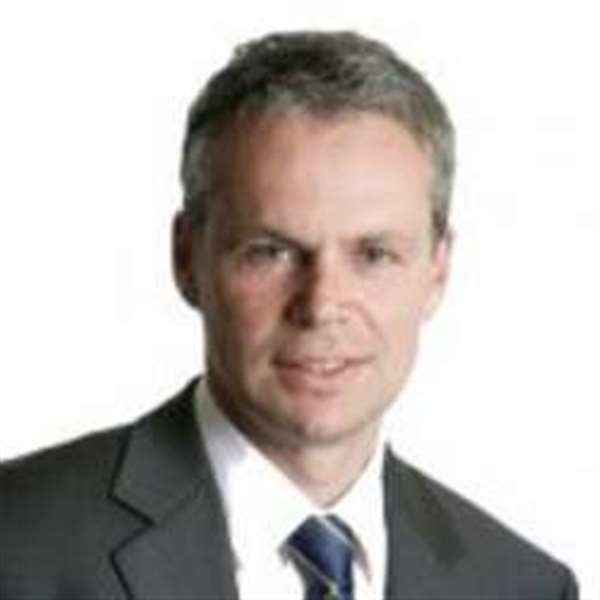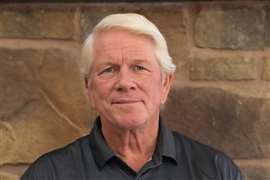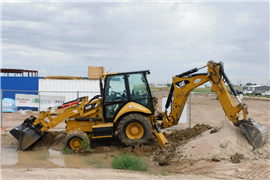Feature – All pumped up
07 July 2015
You could call Aivar Brock’s approach to business a three-stage process.
If he can get a potential new company to the number one position in its market, he’s interested. If second place is possible, you could still have his interest. Anything else is invariably the end of the conversation.
It’s a model that’s served Mr Brock well for a number of years.
Just now it’s serving him with the Polish pump company Drial. Almost five years after he entered the equipment rental industry, he moved into pumps.
It’s now another five years on, and Drial - as market leader in Poland - has already met the first of his objectives. It now employs more than 30 people and offers an equipment range of 400 pumps for renters to choose from.
“I get bored easily and I’ve always found it fun to do new things. I’ve always been focused on niche and specialist rental concepts,” said the man who was once described - in this magazine - as a serial entrepreneur.
“Concepts where competitive edge can be achieved, not only by the amount of finance one can attract, but by diversification, equipment efficiency and tailor made solutions.”
It may sound grand, but Mr Brock’s actual inspiration to get into the pump business was far more simple and straightforward.
“I was looking for something new. I was reading annual reports and financial statements of equipment rental companies, visiting trade shows, talking to peers. And not many companies seemed to be as resilient in a recession as pump rental companies were.
“Then it clicked - people don’t flush the toilet less often just because they’re in a recession. People still need pumps. That proved to be the case in Poland, where our growth rates have been double digit for four years in a row and the trend is continuing.”
Though still a relative newcomer to pumps, Mr Brock is no stranger to Poland and has already set up one market leading business there, an aerial work platform specialist called 123Lift, that was eventually sold on to the Dutch company Riwal.
His first equipment rental experience was also in eastern Europe, with an Estonian company that rented portable toilets and office containers. That was sold to a German company that was a worldwide leader in portable sanitation.
“Pump rental is much more technical than it seems from the outside. You need to engage technical expertise, mechanical knowledge of equipment and also hydraulic engineering and consultancy,
“It’s all about offering the customer the most efficient pumping solution, with the right accessories and solid 24-hour support. Water, or even worse, sewage, will not stop flowing just because the pump has broken down. It will find its easiest way out and that’s when we need to supply a pump.
“The devil is in the detail. In addition to the equipment, there are hundreds of warehouse positions of accessories. One can rent out a pump, but when the whole application is missing a special coupling, the project won’t be able to start.
Rental solution
“That’s where specialist companies come in, who can put the puzzle together into a rental solution. That’s what attracted me to this, the fact that it needed more brainpower than just renting out a jackhammer.”
For all his involvement, Mr Brock believes it is the employees at Drial who have translated his vision of a market leading company into reality.
“I looked for people with the right energy and attitude. They didn’t need any industry experience whatsoever. You can teach people about an industry, but you can’t teach someone to be a young, hungry, high-energy person. If that’s there you can give them the necessary technical skills. But they have to fit in with the culture and understand it, because pumps don’t rent themselves.”
So how does the market that Drial leads compare to others in Europe?
“Penetration wise, it’s comparable to most other continental European markets,” said Mr Brock.
“It’s mostly divided between four categories of companies - civil engineering contractors who own and manage their pump fleets and rent in only for the peak season; specialised dewatering contractors; specialist rental companies such as Drial; and general rental companies.”
But if technical similarities exist, there are some aspects of the country’s pump market that are more difficult to prepare for.
“Poland’s not an easy place to do business or to get paid.
“Poor payment culture is standard across the industry. It puts pressure on cash flow and creates additional and unnecessary bureaucracy.
“Customers also have what I call cowboy market habits. If they can avoid pumping, they will do, even at the cost of the environment or putting their own project and people at risk.”
Despite this, Mr Brock says customer requirements in the country once called “the wild east” are changing for the better, particularly in the area of renting from specialist companies.
“Availability is crucial. You have to have the quantity and a diverse range of equipment and accessories. If the customer is working on a downsized or cut-price project, that usually needs quick mobilisation of additional fleet, which is where specialists have the supply and focus.
“Critical projects need back-up capacity. That wasn’t the case in Poland a couple of years ago, but now customers can accept for example a 50% standby capacity on mission-critical projects.”
Technical considerations include increasing efficiencies - in Poland, diesel is expensive even for construction equipment - sound attenuated copies to reduce noise, and GPS telemetry.
The environment, however, is another area where Poland is playing catch up.
“The Polish market should comply with European environmental standards,” said Mr Brock.
“Real life is different. The one thing customers do care about, though sadly not because of the environment, is fuel consumption.
“The fuel efficiency of pumps has always been an important negotiation point for us, because they tend to run 24/7. Poland doesn’t have subsidised diesel for construction equipment, and customers pay full price, so our focus has always been on the most efficient pump fleet.”
Other opportunities for the future are related to upgrading Poland’s antiquated pipeline system and improving sewage works for smaller communities.
European Union funding running into billions of euros for road and rail infrastructure in the next five years is also expected to benefit pump rental companies.
Drial will almost certainly be part of the action. So will Mr Brock, if he hasn’t sold up and moved on by then.
“I see a paradox in the pump rental industry, not just in Poland but across the whole industry, where pumps are getting more delicate but the applications they are being used in are as tough as ever, so it’s about how robust a pump is just as much as what it costs.
“But as long as people keep flushing toilets, the climate continues to be unpredictable and we see civil construction work coming up, there will be a steady growth for pump rental.”
STAY CONNECTED



Receive the information you need when you need it through our world-leading magazines, newsletters and daily briefings.
CONNECT WITH THE TEAM











